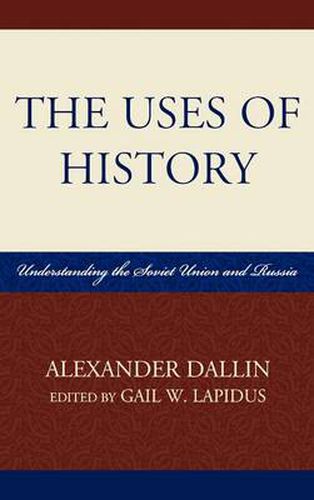Readings Newsletter
Become a Readings Member to make your shopping experience even easier.
Sign in or sign up for free!
You’re not far away from qualifying for FREE standard shipping within Australia
You’ve qualified for FREE standard shipping within Australia
The cart is loading…






Exploring Soviet and Russian history, politics, and foreign policy, The Uses of History brings together the classic essays of renowned scholar Alexander Dallin. The author provides insightful analysis and nuanced interpretations of such key-and controversial-issues as the domestic sources of Soviet foreign policy, Stalin’s leadership in World War II, Russian-American relations in the Reagan era, the causes of the collapse of the USSR, and the disappointments of Russia’s post-Soviet evolution. With his incisive assessment of the biases and blunders in American interpretations, Dallin rejects single-factor explanations for Soviet and Russian domestic and foreign policies, instead examining the complex interplay of internal and external conditions, institutions, mindsets, and the role of individual leaders. All readers interested in Soviet and post-Soviet history will find this collection a stimulating and deeply knowledgeable resource.
$9.00 standard shipping within Australia
FREE standard shipping within Australia for orders over $100.00
Express & International shipping calculated at checkout
Exploring Soviet and Russian history, politics, and foreign policy, The Uses of History brings together the classic essays of renowned scholar Alexander Dallin. The author provides insightful analysis and nuanced interpretations of such key-and controversial-issues as the domestic sources of Soviet foreign policy, Stalin’s leadership in World War II, Russian-American relations in the Reagan era, the causes of the collapse of the USSR, and the disappointments of Russia’s post-Soviet evolution. With his incisive assessment of the biases and blunders in American interpretations, Dallin rejects single-factor explanations for Soviet and Russian domestic and foreign policies, instead examining the complex interplay of internal and external conditions, institutions, mindsets, and the role of individual leaders. All readers interested in Soviet and post-Soviet history will find this collection a stimulating and deeply knowledgeable resource.